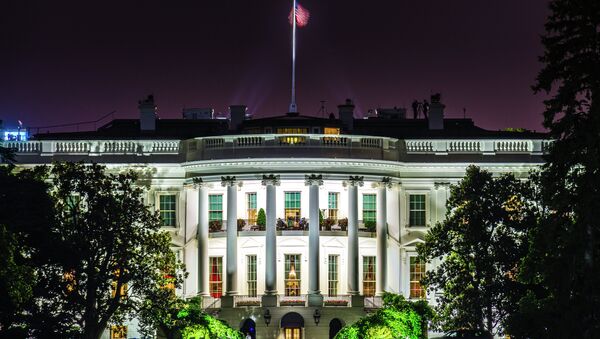In the face of rising terrorist threats the time has come to reconsider US-Russian relations, Professor Emeritus Princeton University and New York University Stephen F. Cohen notes, adding that whether one likes it or not, American national security runs through Moscow.
"And it is true whichever existential or grave world threat you may emphasize. For some people it is climate change, for others it is human rights, for some it is the spread of democracy. For me, for quite a while, it has been the new kind of terrorism that afflicts the world today. These terrorists are no longer 'non-state actors.' These guys are organized, they have an army, they have a self-professed state, they have ample funds and they have the ability to hurt us gravely in many parts of the world. Everyone seems to have forgotten 9-11 and Boston, but Paris should have reminded us of what's at stake," Professor Cohen underscored in his speech given at San Francisco Commonwealth Club on November 18, 2015.
The professor called attention to the fact that today terrorists are using conventional weapons, bombs, mortars and guns. It cannot be excluded that one day terrorists might even use radioactive materials in their attacks.
"This kind of threat cannot be diminished, contained, much less eradicated unless we have a partner in the Kremlin," Stephen F. Cohen stressed.
However, instead of viewing Russia as a partner in America's battle against international terrorism, Washington turns its back on Moscow. Furthermore, some Washington policymakers are fuelling what is in fact a new Cold War between Russia and the United States.
The roots of this unproductive approach to the Russo-American relationship lay in a post-Cold War period, according to the professor.
"The chance for a durable Washington-Moscow strategic partnership was lost in the 1990s after the Soviet Union ended. Actually it began to be lost earlier, because it was Reagan and Gorbachev who gave us the opportunity for a strategic partnership between 1985-89. And it certainly ended under the Clinton administration, and it didn't end in Moscow. It ended in Washington — it was squandered and lost in Washington. And it was lost so badly that today, and for at least the last several years (and I would argue since the Georgian war in 2008), we have literally been in a new Cold War with Russia," the American academic underscored.
The result of an unwise and pernicious "winner-takes-all" approach adopted by the Clinton administration in the 1990s is a new reality where virtually no rules of mutual conduct and no red lines exist.
The professor noted that after the Cuban Missile Crisis of 1962, Washington and Moscow developed certain rules-of-mutual conduct — thus, each side knew where the other's red line was.
"One of the things that Putin and his predecessor President Medvedev keep saying to Washington was: You are crossing our Red Lines! And Washington said and continues to say, 'You don't have any red lines. We have red lines and we can have all the bases we want around your borders, but you can't have bases in Canada or Mexico. Your red lines don't exist'," Stephen Cohen pointed out.
According to the professor, there is a number of US policies that have "most offended Russia and still offend it today": the decision to expand NATO right to Russia's borders; the refusal on the part of Washington to negotiate on European missile defense with Moscow; and meddling in Russia's internal affairs in the name of so-called "democracy promotion."
"Are there any red lines left anymore when it comes to our behavior toward Russia? Do we have the right to say or do anything we wish?" Professor Cohen asked rhetorically and added: "This extends to everything, and it certainly extends to politics. The White House simply can't keep its mouth shut, being egged on by vested anti-Russian lobbies and mainstream media."
To complicate matters further, in recent years the world has seen almost three proxy wars between the United States and Russia, he continued. First, in Georgia in 2008, then in Ukraine, beginning in 2014, and prior to the hideous November 13 massacre in Paris it appeared that Syria would be the third.
"We don't know yet what position Washington is going to take on Syria. Hollande made his decision; he declared a coalition with Russia," the US academic noted.
To break the stalemate and improve the situation the professor proposed a series of steps: to ensure the accomplishment the Minsk agreements in order to settle the Ukraine crisis; to grasp a chance to form a wide anti-Daesh coalition in Syria together with Russia and major European powers; and to renegotiate the Nunn-Lugar Cooperative Threat Reduction initiative aimed at reduction of weapons of mass destruction.
Meanwhile, the White House and US State Department are expressing their deep concerns about Russia's diminishing America's leadership in the world and focusing on how to counter Moscow's actions in Syria.
"We in the United States cannot lead the world alone any longer, if we ever could. Long before Paris, globalization and other developments have occurred that ended the mono-polar, US-dominated world. That world is over. A multi-polar world has emerged before our eyes, not just in Russia but in five or six capitals around the world. Washington's stubborn refusal to embrace this new reality has become part of the problem and not part of the solution. This is where we are today…. even after Paris," the American academic concluded.



